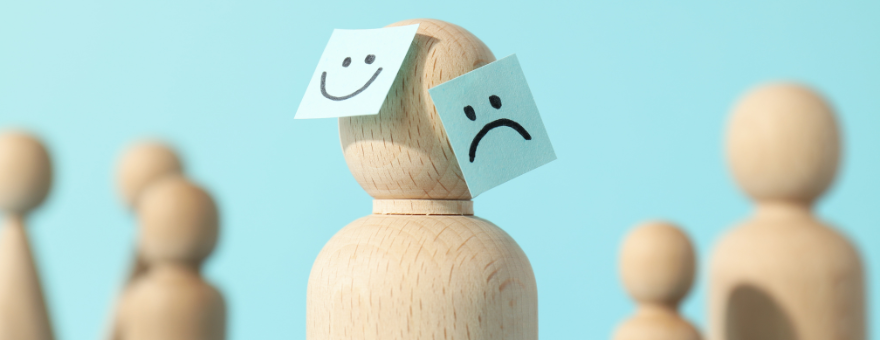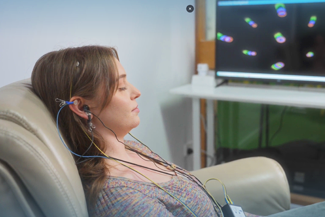Navigating the Labyrinth: Mental Health, Neurodiversity, and the Power of Understanding
January 20, 2025

 |
By: Pivot Point Family Growth Centre |
Understanding Mental Health and Neurodiversity
The chill of January brings with it not only the promise of a new year but also two crucial observances: Bell Let’s Talk Day on January 22nd and Alzheimer’s Awareness Month. While seemingly disparate, these two events share a profound connection – they both underscore the intricate and often invisible challenges that impact mental health and well-being. This January, let’s delve deeper into these challenges, including the role of neurodiversity, brain injury, and how understanding these factors can empower us all, especially those supporting loved ones through various challenges.
Bell Let’s Talk is a crucial initiative that opens up conversations about mental health, encouraging us to break down stigma and create a supportive society. This year, as we share our stories and listen to others, it’s important to acknowledge that mental health struggles manifest in countless ways. From visible challenges to the hidden battles, the spectrum is vast. This is where acknowledging the significance of neurodiversity and the long-lasting impacts of Brain Injury comes into play.
While Alzheimer’s Month focuses on the heartbreaking reality of cognitive decline, its impact extends far beyond memory loss. The emotional toll on individuals and their families, the shifts in personality, and the struggle to maintain a sense of self all contribute to a complex mental health landscape. Caregivers are typically younger family members who have never cared for anyone in this capacity before – let alone their parents or older family members. This, coupled with the heartbreak of observing very fast cognitive decline, often leaves caregivers experiencing immense stress, grief, and isolation as they navigate the changing needs of their loved ones. This is one of the subtle and sometimes invisible ways families are impacted when facing the mental health battles of a loved one.
Both scenarios, facing the challenges of mental health struggles or supporting a loved one through a neurodegenerative disorder, can significantly affect families and relationships. While these can sometimes be seen as two different situations, both are firmly planted in mental health impacts on family and the common needs faced in both situations. The key to learning how to cope with and navigate through these scenarios lies in knowledge and normalizing the narrative. By doing so, we can reduce stigma and create an environment where people feel able to seek support when needed.
The Unique Landscape of Neurodiversity & the Impact of Brain Injury
The term “neurodiversity” highlights the fact that neurological differences are a normal and natural variation in the human population. Conditions like ADHD, Autism Spectrum Disorder (ASD), learning disabilities, Anxiety, Depression, and Fetal Alcohol Spectrum Disorders (FASD) all represent different ways in which the brain processes information. When we embrace the concept of neurodiversity, we move away from the idea of a single “normal” brain and towards a more inclusive and accepting view of human variation where we are all unique. Understanding that these differences exist is the first step to providing appropriate support and interventions.
Traumatic brain injuries (TBIs), concussions, and other brain injuries can also dramatically alter an individual’s mental and emotional landscape. These injuries, whether caused by accidents, sports injuries, or other events, can lead to a wide array of challenges, such as difficulties with focus, memory, impulse control, emotional regulation, and even personality shifts. These post-injury symptoms can directly impact a person’s ability to function in daily life and can result in depression, anxiety, quickly triggered anger or outbursts, and frustration for the individual and their family. It’s crucial to understand that these changes are often a result of physiological changes in the brain and are not a reflection of the person’s character or will.
Exploring Pathways to Support and Healing
 Navigating the complexities of mental health, whether your own or that of a loved one, requires a multifaceted approach. There is no single “cure-all” or solution that works for everyone. Rather, it is often a combination of strategies, support systems, and personalized care plans that prove most effective. This holistic perspective acknowledges that individuals come with unique circumstances and needs. What works well for one person or family may not be suitable for another.
Navigating the complexities of mental health, whether your own or that of a loved one, requires a multifaceted approach. There is no single “cure-all” or solution that works for everyone. Rather, it is often a combination of strategies, support systems, and personalized care plans that prove most effective. This holistic perspective acknowledges that individuals come with unique circumstances and needs. What works well for one person or family may not be suitable for another.
Mental health and well-being are deeply interconnected with the intricate workings of the brain, and therefore various evidence-based approaches are utilized to support individuals. These may include traditional counselling, therapeutic behavioural interventions, support groups, and brain-based therapies. It is important that the pathway to support aligns with an individual’s unique needs and goals.
One tool that may be used is Neurofeedback Brain Mapping, a technology that uses EEG (electroencephalography) to record brainwave patterns. This process provides a detailed snapshot of the brain’s electrical activity. This “map” can help identify areas where the brain may be functioning efficiently, and areas that may be underperforming or dysregulated. It’s like having a road map to understand the brain’s unique patterns, highlighting pathways of optimal performance, and areas that might need some support. This information can be particularly useful in better understanding the underlying challenges someone might be facing, from focus and attention issues to sleep disturbances, anger, anxiety, and more. Understanding these patterns may help to guide more effective care plans, which may include Neurofeedback Brain Training.
Neurofeedback Brain Training is a gentle and non-invasive process that aims to help the brain learn to regulate itself more effectively. It’s a way to promote healthier brain wave patterns and improve the brain’s flexibility and overall resilience. This approach encourages the brain to move toward greater balance and improved brain performance. It is important to note that at Pivot Point, Brain Training is not a standalone approach: Instead, it is often paired with traditional counseling, family involvement and other mental health and behavioural supports.
It’s important to acknowledge that both Brain Mapping and Brain Training are specific tools that could be beneficial for some individuals, but that they are not always needed or appropriate for every person or situation. A personalized approach, offering a variety of treatment options to match the diverse needs of individuals, is generally considered most effective.
Knowledge, Compassion, and Action: Supporting Mental Health and Neurodiversity
Navigating the complexities of mental health struggles – from cognitive decline or from other neurodiversities or chronic challenges – can be a difficult journey. Finding the right support is essential. At Pivot Point, we understand that each individual and family has unique needs, and we are committed to providing a wide array of services to match those needs. We offer specialized support for children, teens, and adults, as well as couples and families. Our experienced team works collaboratively to bring hope and stability back into lives that may be facing various challenges.
If you’d like to explore how we can assist you or your family, we invite you to contact us for a complimentary consultation. To learn more about Neurofeedback Brain Mapping or Brain Training, and to schedule an appointment, please visit: https://pivotpoint.ca/brain-map/. Or, to explore our range of Mental Health support services, please visit: https://pivotpoint.ca/mental-health-services/.
This January, as we participate in Bell Let’s Talk and acknowledge the challenges of Alzheimer’s, let’s commit to expanding our understanding of mental health, embracing neurodiversity, and learning more about the ways in which we can support each other. It’s through these conversations and actions that we can truly make a difference and create a more compassionate and inclusive world for all.



 Ontario Regional Manager
Ontario Regional Manager


 Adult Services & Transition Planning Program Manager
Adult Services & Transition Planning Program Manager Complex Care Program Manager
Complex Care Program Manager


